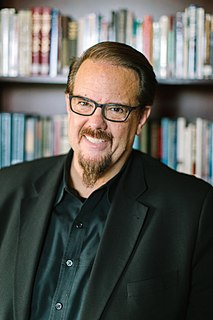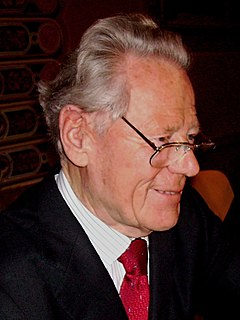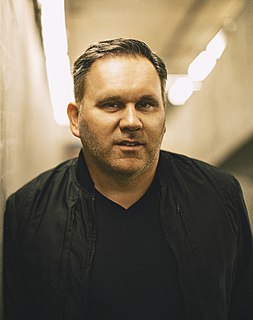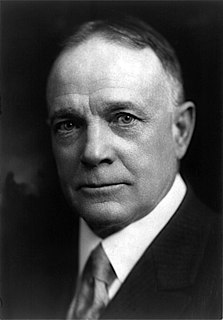A Quote by Andy Stanley
The church wasn't an organization in the first century. They weren't writing checks or buying property. The church has matured and developed over the years. But for some reason, the last thing to change is the structure of leadership.
Related Quotes
I'd signed up not just for Christianity but the established Church of England. That has a particular history and I think we rather lost it in the 19th Century, we became so much part of empire and colonialism, the language of the Church Of England still reflects that Victorian time. As the 20th Century developed, not surprisingly people left the church and I can see the church's role in losing people.
Barna is correct when he writes, "After fifteen years of diligent digging into the world around me, I have reached several conclusions about the future of the Christian church in America. The central conclusion is that the American church is dying due to lack of strong spiritual leadership. In this time of unprecedented opportunity and plentiful resources, the church is actually losing influence. The primary reason is the lack of leadership. Nothing is more important than leadership."7
The divorce between Church and State ought to be absolute. It ought to be so absolute that no Church property anywhere, in any state or in the nation, should be exempt from equal taxation; for if you exempt the property of any church organization, to that extent you impose a tax upon the whole community.
Has God no living church? He has a church, but it is the church militant, not the church triumphant. We are sorry that there are defective members, that there are tares amid the wheat. . . . Although there are evils existing in the church, and will be until the end of the world, the church in these last days is to be the light of the world that is polluted and demoralized by sin. The church, enfeebled and defective, needing to be reproved, warned, and counseled, is the only object upon earth upon which Christ bestows His supreme regard.
I'd make an educated guess that 20 to 25 percent of the taxable property in the U.S. is Church-owned.In a recent book, Church Wealth and Business Income, it was estimated that this property -all of it tax-exempt -is worth upwards of 80 billion dollars. I know that's a fantastic, unbelievable figure, but there's every reason to believe that it's on the conservative side; and this amount is increasing yearly at a geometric rate.
In my view, the Catholic Church as a community of faith will be preserved, but only if it abandons the Roman system of rule. We managed to get by without this absolutist system for 1,000 years. The problems began in the 11th century, when the popes asserted their claim to absolute control over the Church.






































